From Morning to Midnight at the National
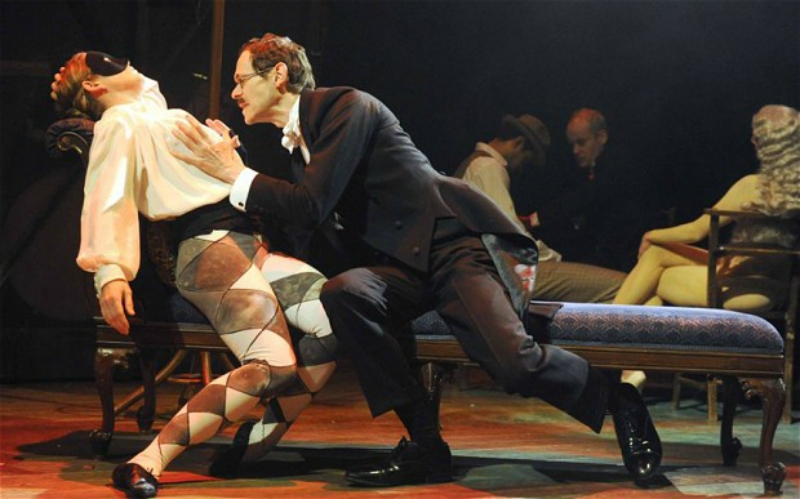
A huge impending clock face chiming midnight hangs above the stage. A revolving set – half bank office and half clerk’s desk – is a hive of agitated activity as customers enter from the street and the clerk shuffles through money. With a multiplicity of minute sounds and such impeccable original staging from Soutra Gilmour, the effect is that of opening a clock or a musical box and admiring the fast accuracy of the workings inside. It seems something truly brilliant has been set up; indeed the entirety of the first scene, with its energy, caricatures and humour, is magnificent.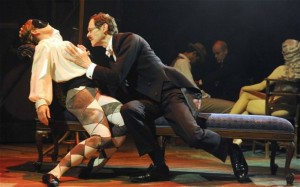
Enter a woman from Florence, dripping in furs and demanding 3000 marks from the clerk, which the manager will not grant her until a telegram authorising her signature arrives from her Italian bank. Anxious, she grazes the clerk’s hand with her own, igniting a series of sexual fantasies and awakenings, which drive the clerk from every normality in his everyday life. His day-long journey takes him from unassuming bank clerk to criminal mastermind is an odyssey of self-destruction. Adam Godley as a near-nonsensical physical comedian is hilarious. The clerk absconds from the bank with 60,000 marks, reaching his “epiphany” in a snowdrift outside of the town. The snow – realised in white sheeting – whirls about him. Here Melly Still’s direction delightfully recalls the restless sea of Coram Boy (2005). He cries: “I haven’t lived. I want to experience life. And I am willing to pay cash.”
Perhaps owing to the impressionistic nature of George Kaiser’s play – originally written in 1912 and reflective of social change in pre-war Germany (the play was banned as a result of the censorship of avant-garde theatre and its portrayal of the Kaiser) – the scenes and adventures that follow gradually lose their vigour, and all we are left with is a lot of noise. Scene five entitled “Family” is particularly galling, with an overacted mother/wife and (partially intentionally) shrieking daughters. Throughout scenes five to seven – following the clerk to a cycle race, a brothel, and a religious meeting in a tavern – the taut energy that made the first part of the production so impressive is severely lacking.
As the scenes become grander, Godley’s voice is lost. The final religious meeting becomes a framework for penance stories, which are not a little relentless. Even as the clerk begins to hear his own sins spoken out and he truly repents, criticising money for its fraudulence, no emotional peak is reached. One can’t help wondering if the play is better appreciated as a product of its time, as the energy and charisma of this initially thrilling production disappointingly dwindle.
Harriet Baker
From Morning to Midnight is at the National Theatre until 23rd January 2014, for further information or to book visit here.




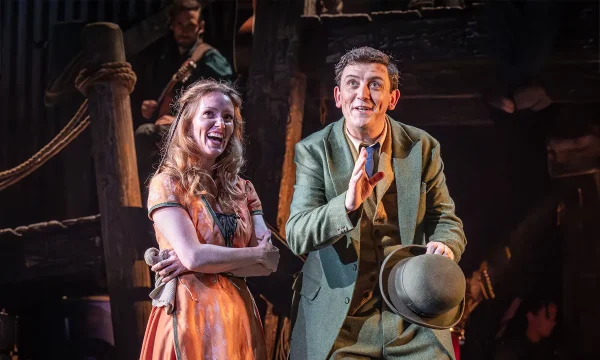
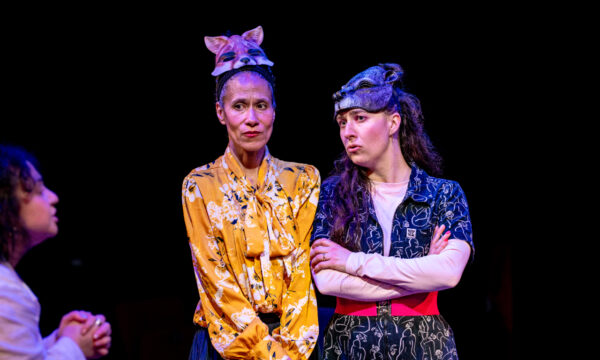

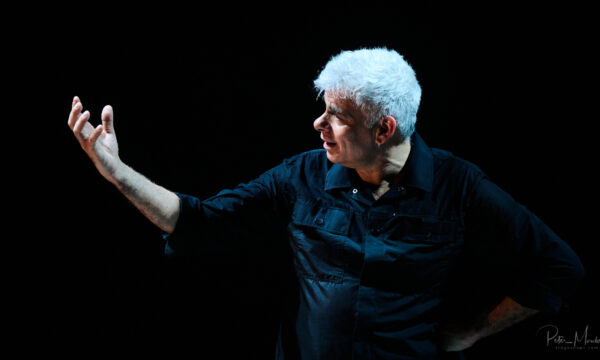
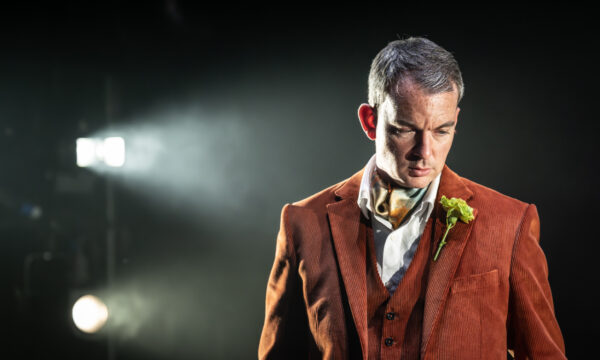
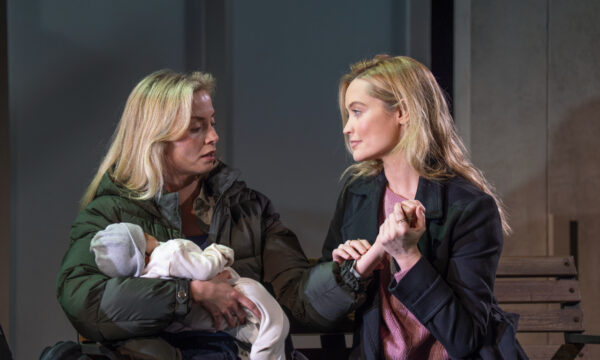














Facebook
Twitter
Instagram
YouTube
RSS